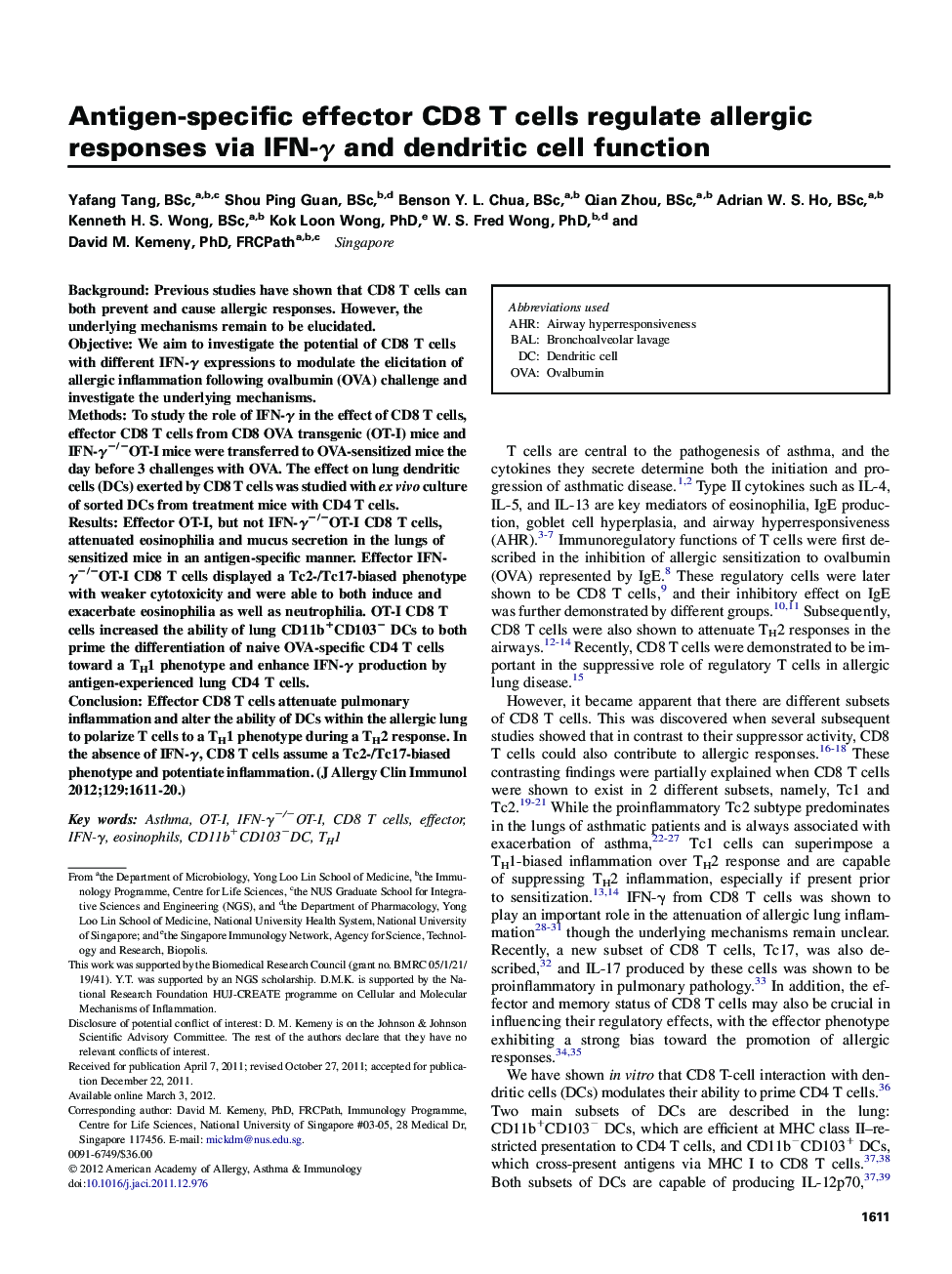| Article ID | Journal | Published Year | Pages | File Type |
|---|---|---|---|---|
| 6066814 | Journal of Allergy and Clinical Immunology | 2012 | 14 Pages |
BackgroundPrevious studies have shown that CD8 T cells can both prevent and cause allergic responses. However, the underlying mechanisms remain to be elucidated.ObjectiveWe aim to investigate the potential of CD8 T cells with different IFN-γ expressions to modulate the elicitation of allergic inflammation following ovalbumin (OVA) challenge and investigate the underlying mechanisms.MethodsTo study the role of IFN-γ in the effect of CD8 T cells, effector CD8 T cells from CD8 OVA transgenic (OT-I) mice and IFN-γâ/âOT-I mice were transferred to OVA-sensitized mice the day before 3 challenges with OVA. The effect on lung dendritic cells (DCs) exerted by CD8 T cells was studied with ex vivo culture of sorted DCs from treatment mice with CD4 T cells.ResultsEffector OT-I, but not IFN-γâ/âOT-I CD8 T cells, attenuated eosinophilia and mucus secretion in the lungs of sensitized mice in an antigen-specific manner. Effector IFN-γâ/âOT-I CD8 T cells displayed a Tc2-/Tc17-biased phenotype with weaker cytotoxicity and were able to both induce and exacerbate eosinophilia as well as neutrophilia. OT-I CD8 T cells increased the ability of lung CD11b+CD103â DCs to both prime the differentiation of naive OVA-specific CD4 T cells toward a TH1 phenotype and enhance IFN-γ production by antigen-experienced lung CD4 T cells.ConclusionEffector CD8 T cells attenuate pulmonary inflammation and alter the ability of DCs within the allergic lung to polarize T cells to a TH1 phenotype during a TH2 response. In the absence of IFN-γ, CD8 T cells assume a Tc2-/Tc17-biased phenotype and potentiate inflammation.
